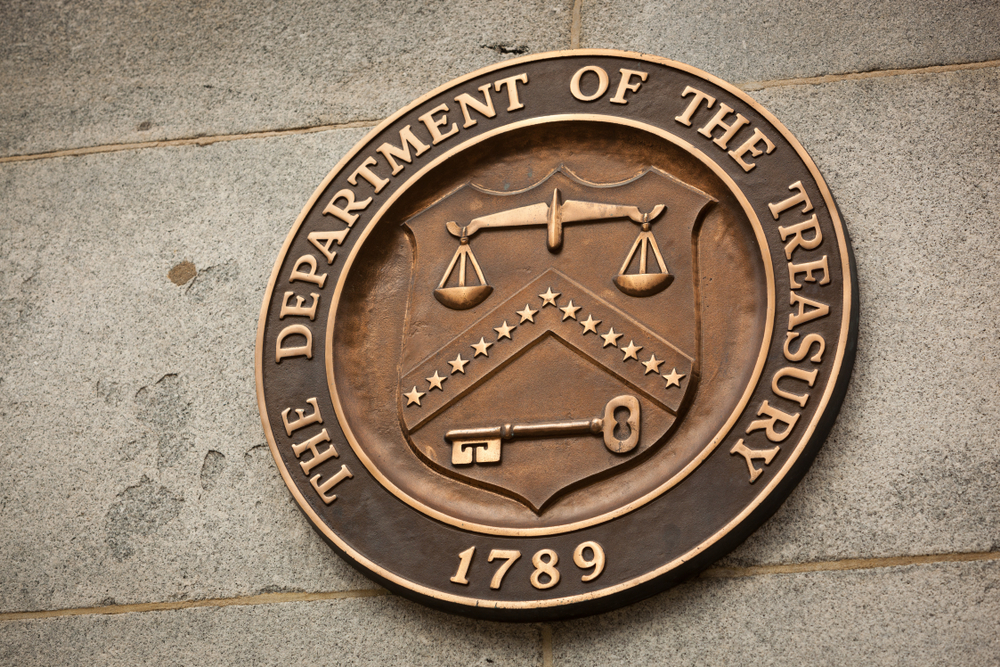The US Deputy Treasury Secretary Adewale Adeyemo urges Congress to grant necessary tools to help mitigate crypto crime and sanctions evasion. The Treasury is pushing Congress to enact laws to give the department the tools to reduce illicit finance linked to crypto, particularly terrorist financing and noncompliance with sanctions.
Adeyemo presented a written testimony for the Senate Committee on Banking, Housing, and Urban Affairs, illustrating that the absence of Congressional action leaves the fight against crypto-linked illicit finance futile. The testimony on Tuesday, April 9, urges Congressional input by equipping the Treasury to tackle the increased cases of malign actors and terrorist groups using virtual assets.
US Treasury Urges Congressional Action to Combat Crypto-based Illicit Finance
Adeyemo cited the crypto usage by terrorist groups, including Hamas, al-Qaeda, and Palestinian Islamic Jihad (PIJ), as posing threats. The threats extend since malign actors led by North Korea and Russia have embraced crypto to circumvent the sanctions imposed on traditional finance (TradFi) instruments.
Adeyemo informed the legislators that while the Treasury has realized some success in smoking out the illicit finance within the digital asset ecosystem, building an enforcement regime is necessary. Its establishment will reinforce the capacity to avert illicit financing to terrorists, rogue states, and transnational criminals who turn to digital assets.
Adeyemo’s written testimony urges reforms to introduce secondary sanctions that the Treasury can deploy, targeting foreign digital asset providers facilitating illicit finance. The Deputy Treasury Secretary noted that while the Treasury can avert US correspondent accounts and execution of transactions for overseas financial institutions dealing with sanctioned parties, crypto exchanges hardly have or rely on the correspondent accounts to execute such transactions.
Adeyemo urges a second reform to extend the authorities’ scope to the crypto exchanges and virtual asset service providers (VASPs). The Treasury official illustrated that both play critical roles in the digital currency movement, hence the need for regulatory oversight.
Treasury Seeks Extraterritorial Reach to Combat Crypto Crimes
Adeyemo urged Congressional action granting authority for the Treasury to have extraterritorial reach whenever the digital asset parties harm the national security and exploit the country’s financial system.
Adeyemo acknowledged that most illicit financing related to terrorism still flows via TradFi services and products. Nonetheless, actors increasingly conceal identities and move resources via virtual currency.
Adeyemo’s written testimony borrows a leaf from a rallying cry by lawmakers led by Massachusetts Senator Elizabeth Warren, who repeatedly links crypto to illicit financing. While such cases exist, the figures have emerged as misinterpreted.
Blockchain analytics firm Chainalysis, in its October 2023 report, illustrated that crypto constitutes a small portion of terrorist financing. The findings received backing from Adeyemo when addressing the audience hosted by London’s Royal United Services Institute. He conceded that crypto is yet to join the vast majority of how terrorist groups are funded.
Arkansas Representative French Hill indicated in February 2024 while addressing the House Financial Services Committee (HFSC) that reactionary claims exaggerate the extent to which terrorists use crypto.
Nonetheless, the registration indicated that the few cases of Hamas and other terrorist entities that have benefited through crypto-linked funding warrant reforms to combat such loopholes. The legislator argued in support of reforms to help the authorities identify and close potential gaps that criminals and terrorists could exploit.
Editorial credit: christianthiel.net / Shutterstock.com
